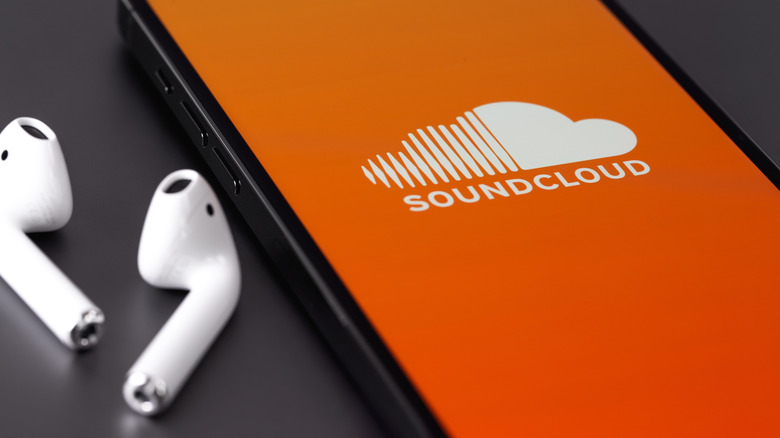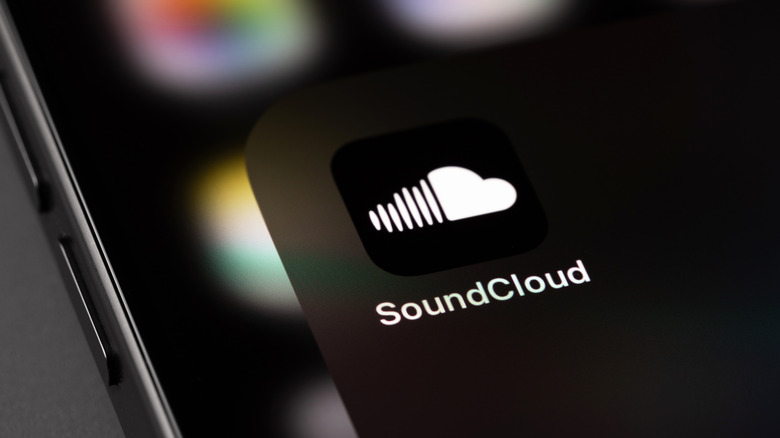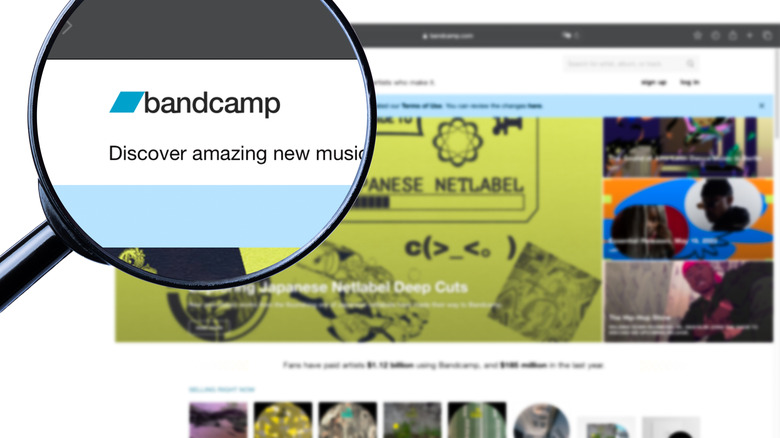Why Musicians Might Want To Avoid SoundCloud Now (And The Best Alternative)
The streaming era has represented a fundamental shift in the way we consume music, elevating big tech to a powerful middleman position between artists and listeners. But since 2007, SoundCloud has represented an alternative path to artistic success. With a simple interface that lets anyone upload songs, podcasts, and more to share with the world, SoundCloud quickly became the de-facto platform for independent artists looking to bypass music industry gatekeepers and major streaming services on their way to success. It spawned entire genres that might otherwise never have existed. The "SoundCloud rap" wave of the 2010s familiarized the public with artists such as 21 Savage, Post Malone, Lil Uzi Vert, and Juice Wrld. These artists blended trippy production with Internet slang, propelling themselves from obscurity to stardom with a click of SoundCloud's Upload button.
However, times have changed drastically, and the latest update to SoundCloud should send alarm bells ringing across its user base. In a change made over a year ago, the platform drastically changed the rules regarding its ability to use user uploaded content for a variety of purposes. Now, with roughly 18 years of artistic output hosted on its servers, SoundCloud is positioned to use that data to drastically improve some of its services. But for those who don't want their creative output used against their will to develop products that may compete against them in the market, it may be time to abandon ship. Here's what you need to know, and what you can do about it.
SoundCloud users must now agree to let AI train on their music
What's got musicians worried is an update to the SoundCloud Terms of Use, which governs the rights of users and is tacitly agreed to when you use the platform. In February 2024, language was added to allow AI models to be trained on user uploaded content. That means everything from Lil Uzi Vert's beloved "XO TOUR Llif3" to that bedroom cover of your favorite song that only has 100 plays is fair game.
The phrasing in question reads as follows. "In the absence of a separate agreement that states otherwise, You explicitly agree that your Content may be used to inform, train, develop or serve as input to artificial intelligence or machine intelligence technologies or services as part of and for providing the services." The legal document then goes on to clarify that "Content delivered to the platform under separate agreements, which is owned and controlled by third party rights holders" will not be used to train AI without agreement from rights holders.
To put that in plain English, any individual who uploads audio to SoundCloud is agreeing to let the platform sell their music to AI companies, while major labels who submit their artists' music to SoundCloud are exempt unless they make a deal with the platform. In other words, big names like Drake and Morgan Wallen are protected, but independent artists who upload from their bedrooms are not. Looking at the Wayback Machine, it appears that the language around AI training was not added until February 12, 2024, a full five days after the stated amendment date of February 7. Was this slipped under the rug because SoundCloud sensed that it would provoke backlash? Unclear, but it's there in plain English now.
The best SoundCloud alternative, and other ways to protect your music
For artists who have built a major following on SoundCloud but are angry about the potential use of their music in AI training, your options are slim. Large platforms like YouTube that are music-friendly also use content uploaded by users to train AI. If you want a platform that allows direct uploads, your best bet is probably Bandcamp, which allows users to upload their created music for streaming. Best of all, Bandcamp makes it incredibly easy to sell your music directly to fans, a throwback to the heyday of the iPod. You can even sell merch and vinyl or CD albums. Bandcamp's Terms of Use explicitly state that it cannot use your music for AI training without your express permission. Bandcamp was bought by Epic Games in 2022, but has been largely unchanged.
However, if you plan on sticking with SoundCloud, you have the diabolical option of using its own AI training policy against it. As revealed by YouTuber and independent musician Benn Jordan in collaboration with researchers at the University of Tennessee, it is possible to encode music files in such a way that an AI trained on them will not hear, for instance, a heartfelt guitar ballad, but a collection of random noises. This tech, called Harmony Cloak, works similarly to the Nightshade technology used by some visual artists to collectively worsen AI models trained on their work. Jordan has used Harmony Cloak to create his own encoding called Poisonify, which could be available as a service. At the time of this writing, it is not yet publicly available, but it's worth keeping an eye out for. Once it's ready, it could be an easy way to make SoundCloud regret training AI on your uploads.


